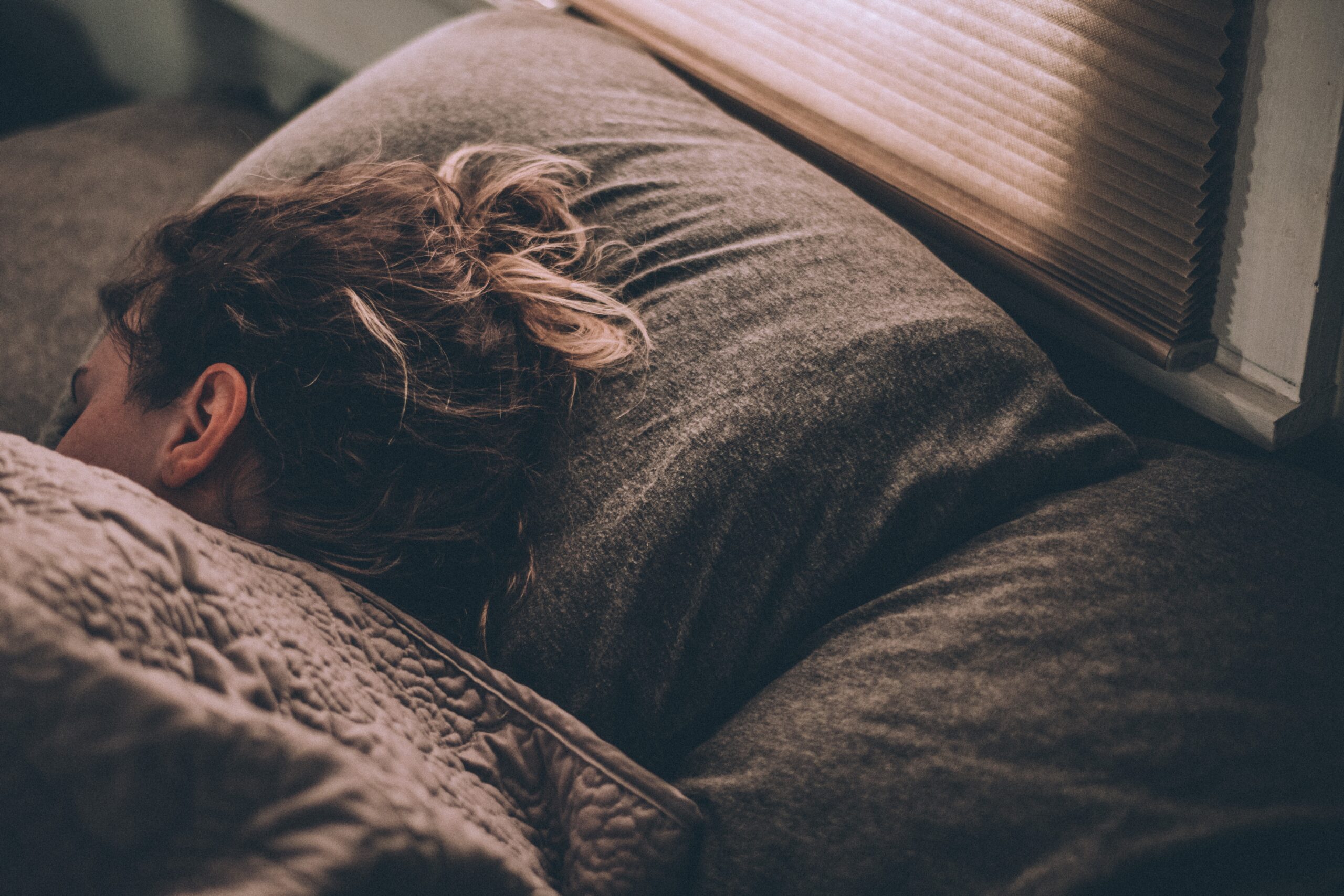Unlock the secrets to better sleep hygiene. Overcome daytime sleepiness, lack of focus, and low productivity at work with these effective tips.
SLEEP HYGIENE: 8 HEALTHY HABITS FOR BETTER SLEEP
You might be intimately familiar with the effects of a poor night’s sleep, but you might not know just how important sleep is to your wellbeing. In this blog post, we’ll explore practical strategies to establish a solid sleep routine and create a sleep-friendly environment.
Here’s what you need to know about promoting positive sleep hygiene.
What Is Sleep Hygiene?
Sleep hygiene refers to a set of healthy sleeping habits that enables you to fall asleep more quickly and can enhance sleep duration and quality.
Poor Sleep and Insomnia
Many individuals have experienced periods of poor sleep (or acute insomnia) as a result of stress or significant changes. These tend to be situational and will resolve within a few days or a couple of weeks.
However, some individuals have long-term (chronic) or recurrent insomnia that lasts for more than a month. Chronic or recurrent insomnia can be secondary to a medical condition or medication (in which case it should be discussed with your primary health care provider) or can be due to bad sleeping habits.
The Side Effects Of Poor Sleep In Adults
If you suffer from sleepless nights, you may have noticed some less than ideal side-effects. Research shows that not getting enough sleep can cause:
- Daytime sleepiness
- Increased irritability, mood swings, anxiety and depression symptoms
- Reduced cognitive functioning (memory, attention, learning)
- Physical health problems (weakened immune function, obesity)
- Increased risk of accidents
- Difficulty concentrating
- Decline in work productivity
- Higher susceptibility to illnesses and infections
- Impaired decision-making and problem-solving abilities
8 Ways To Establish Good Sleep Hygiene
Consistency and routine are key in establishing sleep hygiene. Here are recommendations to help you get better sleep:
- Maintain a consistent sleep schedule.
Maintaining a consistent bedtime and wake up time is a key factor in promoting healthy sleep habits. Our bodies have a natural internal clock, known as the circadian rhythm, which regulates our sleep-wake cycle.
When we establish a regular sleep routine and stick to it, we help synchronize this internal clock, making it easier for us to fall asleep and wake up at the desired times.
To optimize the effectiveness of a consistent bedtime and wake up time, aim for a window of around 30 minutes. Yes, even on weekends.
- Get plenty of exercise during the day.
Between work and other responsibilities, many adults don’t get sufficient regular physical activity. Make sure you engage in physical activity (getting out of breath) at least 15 minutes per day.
- Spend time outside.
Incorporating outdoor time into your daily routine can have a positive impact on your sleep hygiene. Aim for at least 15 minutes of outdoor time each day, preferably during daylight hours. This exposure to sunlight during the day helps reinforce our natural circadian rhythm, making it easier for our bodies to distinguish between day and night.
Even on cloudy or snowy days, sunlight still filters through the clouds and provides beneficial rays. When we spend time outdoors, our eyes receive natural light, which stimulates the production of serotonin, a neurotransmitter that promotes wakefulness and positive mood.
So whether it’s a walk in the park, gardening, shoveling snow or participating in outdoor sports or activities, spend time outside and soak up the natural light!
- Bedtime should be boring!
Creating a relaxing bedtime routine is crucial in preparing your body and mind for sleep. The concept of “bedtime should be boring” emphasizes the need to avoid stimulating or exciting activities close to bedtime (with the exception of sex), as they can interfere with the natural transition to sleep.
- Never underestimate the sleeping environment.
Creating a dark, cool and soothing sleep environment is crucial for promoting quality sleep. Removing sources of light, particularly electronics, can help create a conducive atmosphere.
It is important to prioritize a dark and cool setting, with blackout curtains and turning down the thermostat for example, to help signal to the body that it’s time for rest, improving their sleep quality.
- Night wakings.
If you are unable to fall asleep at bedtime or during the night for more than 45 minutes, you are encouraged to get up, stretch or do something boring until you feel sufficiently sleepy again. No electronics! Lights should remain dimmed.
- Relaxation techniques.
Learn and practice relaxation strategies to help reduce tension before sleep, such as meditation, mindfulness exercises, and progressive muscle relaxation.
- Address mental health issues.
Anxiety and depression are known to interfere with sleep, make sure these are being addressed in adult psychotherapy.
Things To Avoid For Healthy Sleep Hygiene
- Caffeine in the afternoon or later. Be aware that caffeine is present in coffee and tea but also in sodas and chocolate.
- Smoking, alcohol and drugs. All of these can disrupt sleep and should be avoided altogether.
- Going to bed with a full stomach. Digestion and having to use the washroom can disrupt your sleep. Late night snacking might be a cue that the body is tired rather than hungry.
- High intensity exercise or hot baths right before bed. Research shows that the body temperature must be cool to feel comfortable falling asleep. However, light exercise and a warm shower or bath right before bedtime can help some individuals relax. Experiment with what works best for you.
- Electronics at least 30 minutes before bed. This includes the computer, tablet, phone, and TV. If listening to music, make sure not to look at the screen.
- Checking the time, as this may create more anxiety. Make sure your alarm clock face is turned away so you are not constantly checking the time.
- Sleep trackers should be used with caution. For some individuals sleep trackers can create more anxiety as they become overly focused on not having spent sufficient time in deep sleep. Focusing on ”feeling refreshed” might be a better metric.
If Ongoing Sleep Issues Persist
Of note, if you continue to have difficulty with sleep despite implementing the above suggestions, you should talk to your family doctor to rule-out medical issues, such as obstructive sleep apnea. Your family doctor can also recommend supplements to help with sleep (like melatonin or magnesium) if needed.
Psychotherapy for Sleep Issues: Adult Psychotherapy
If you’re struggling with specific sleep issues or need personalized guidance in forming effective bedtime routines for you, the Leon Psychology Clinic can help. Each session includes expert advice and tailored strategies to address your unique needs.
Frequently Asked Questions
How much sleep do adults need?
Sleep needs can vary a lot between individuals and you are encouraged to trial different sleep lengths to find the right one for you. This being said, most adults need on average 7 hours of sleep per night. There is some evidence that women need more sleep on average then men.
Should you nap during the day?
Long naps and late afternoon/evening naps are discouraged as they impact your night sleep quality. Short ‘‘power’’ naps of 15-20 minutes can be restorative. If you find yourself taking frequent hour-long naps your night sleep probably needs to be improved.
Is there such a thing as too much sleep?
Yes! There is strong evidence that too much sleep can have negative effects on your health. If you find yourself regularly sleeping 11 hours or more (not because of shift work), then you should contact your family doctor to rule-out a physical issue. Excessive sleep can also occur due to depression or can be a maladaptive coping mechanism.
How can I create a sleep-friendly environment in my bedroom?
To create a sleep-friendly environment, ensure the bedroom is dark, quiet, and at a comfortable temperature. Remove or minimize sources of light, use blackout curtains or blinds, and consider using white noise machines to block out disruptive sounds. Keep the bedroom free from electronics and ensure a comfortable mattress and bedding. Keep the temperature cool.
In Summary
Good sleep hygiene is crucial for overall health, impacting cognitive function, mood regulation, and immune system functioning. Establishing consistent sleep patterns, creating a comfortable sleep environment, and practicing relaxation techniques can contribute significantly to quality sleep, promoting better physical and mental health.
Dr. Stephanie Leon
Dr. Leon is a clinical psychologist and neuropsychologist practicing in the province of Ontario and Quebec. She works with children, teens, and their parents to address emotional, behavioural, and cognitive difficulties. Dr. Leon offers online psychology services through the Leon Psychology Clinic.
Found this helpful? Share with a friend!


